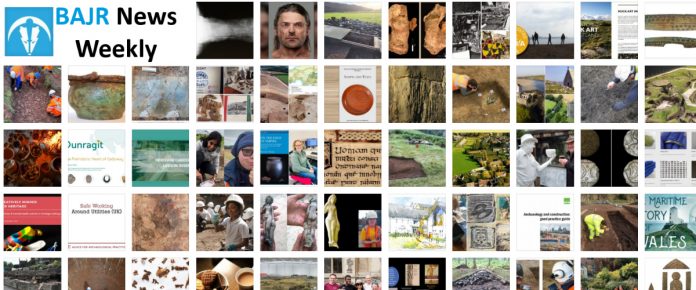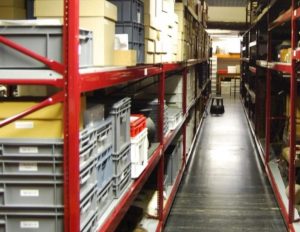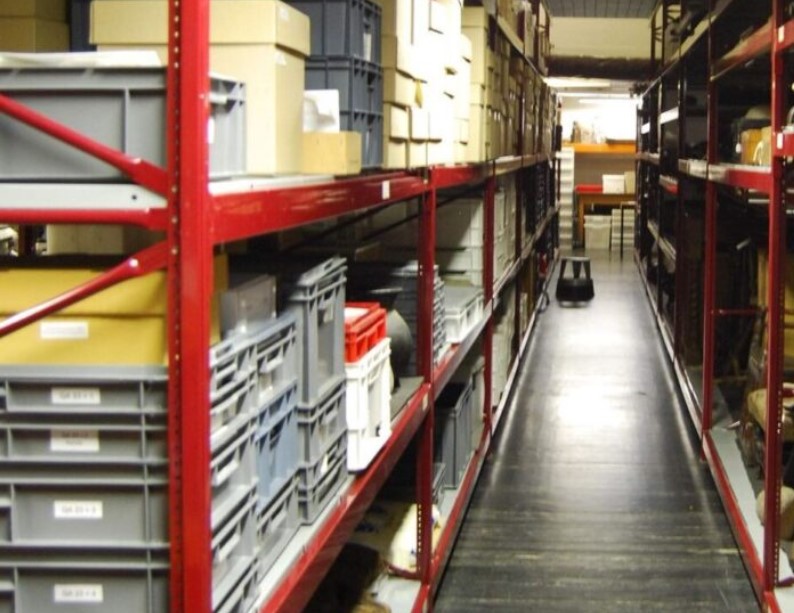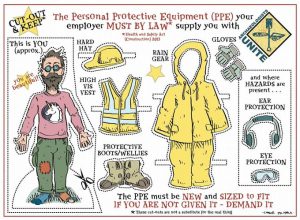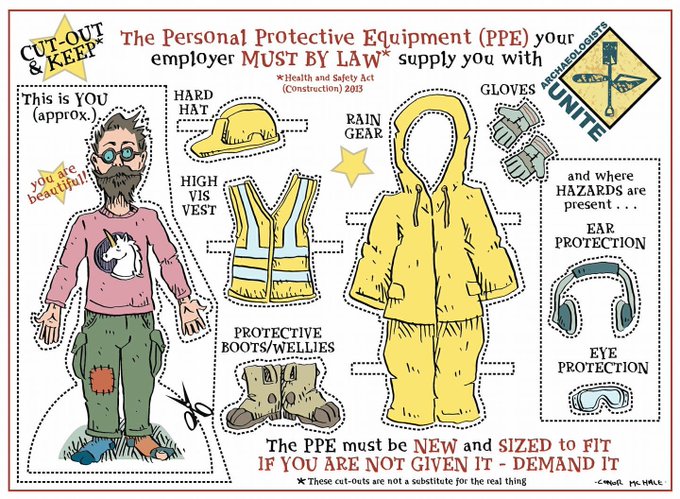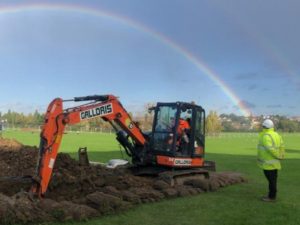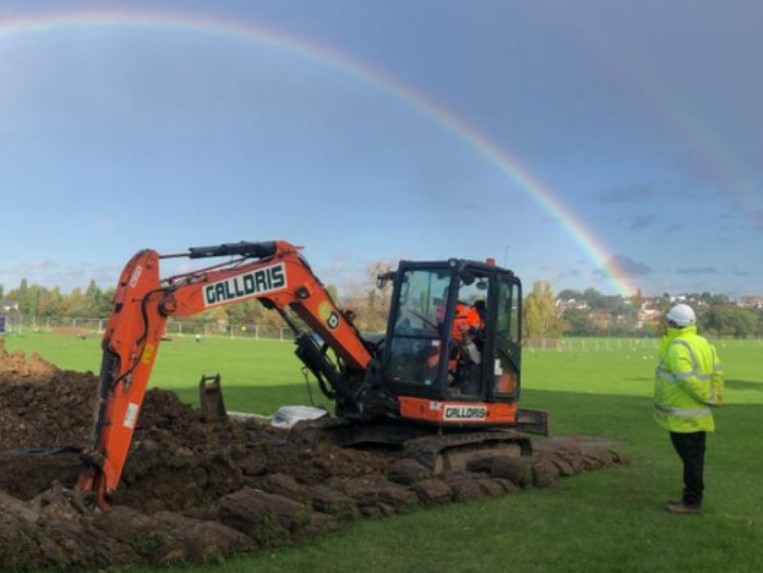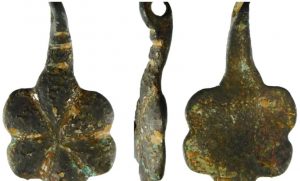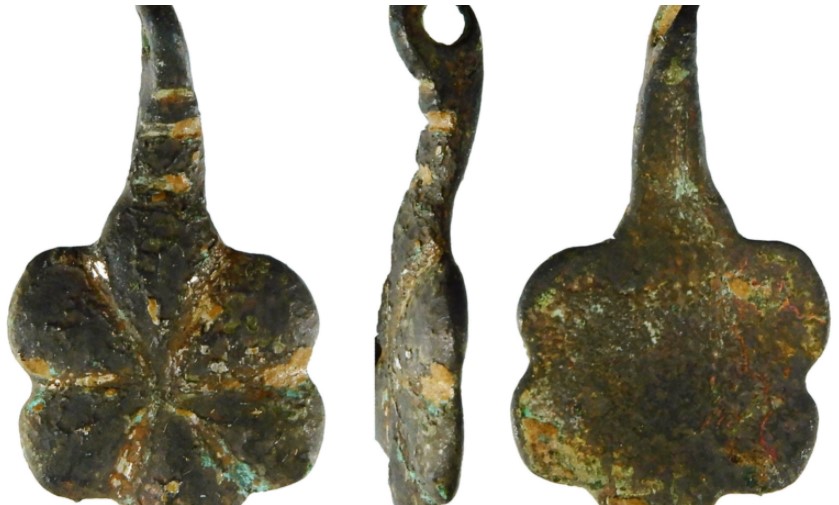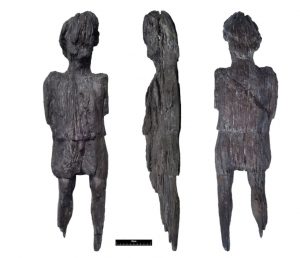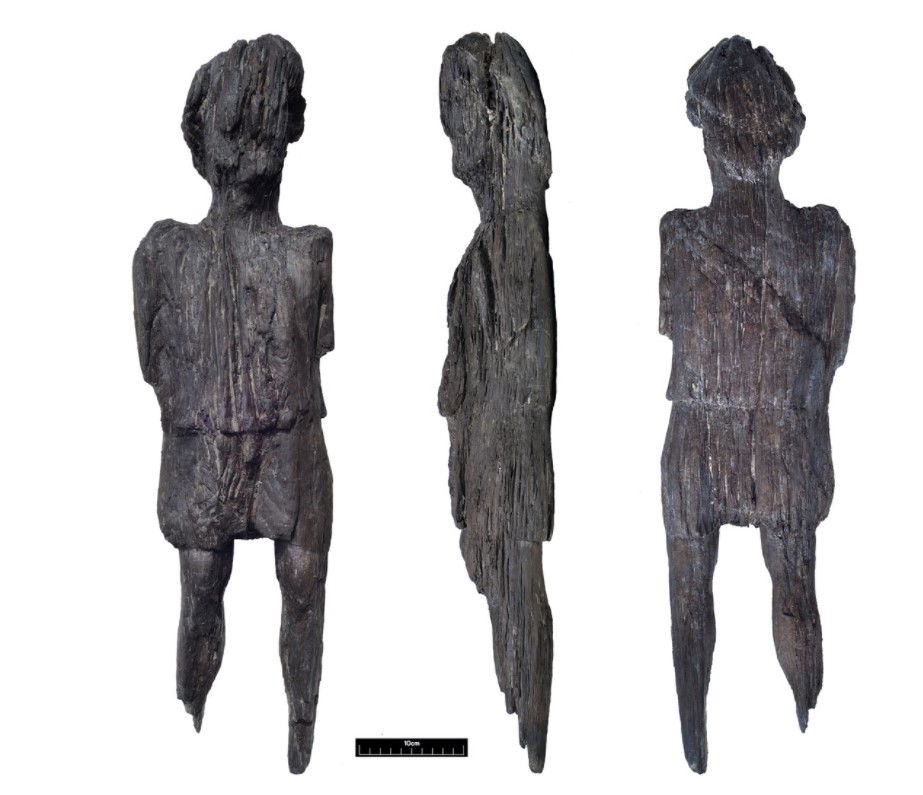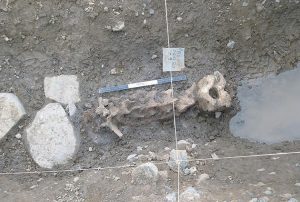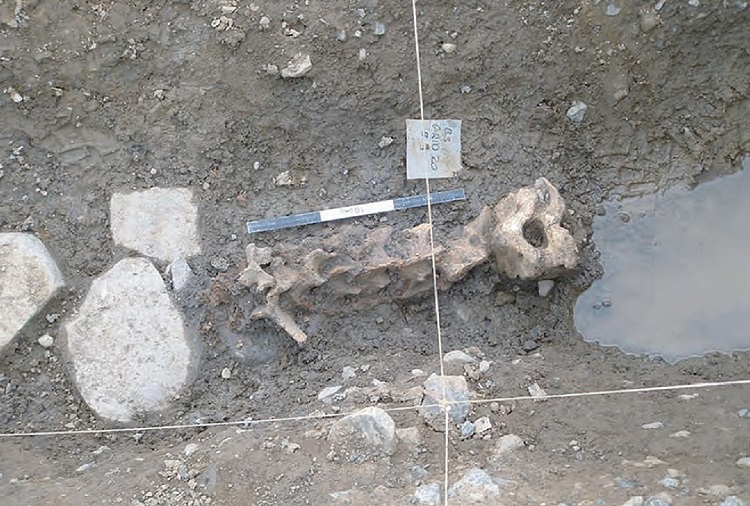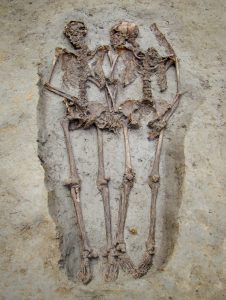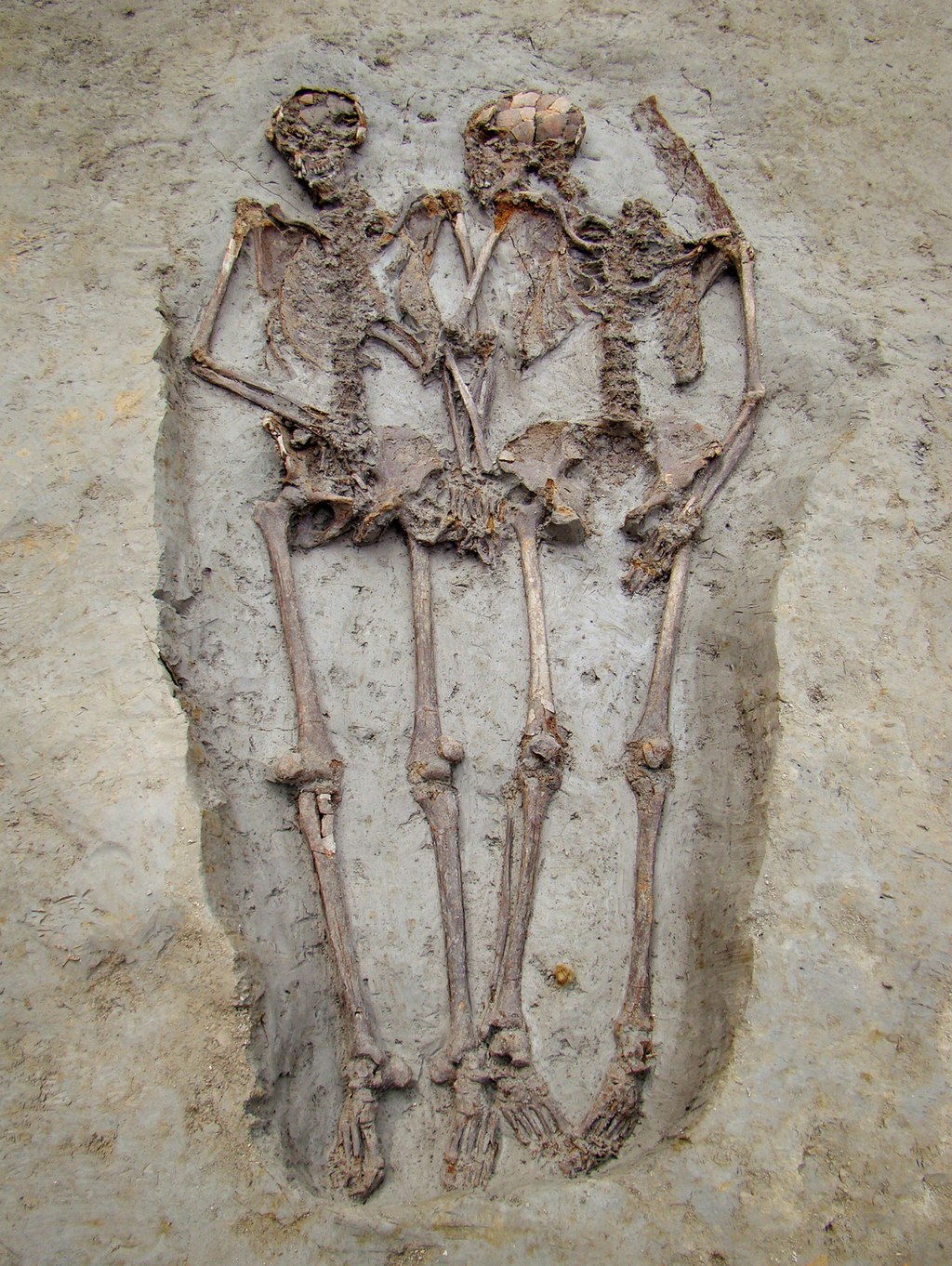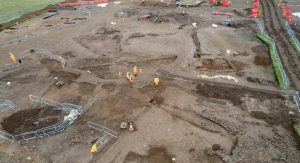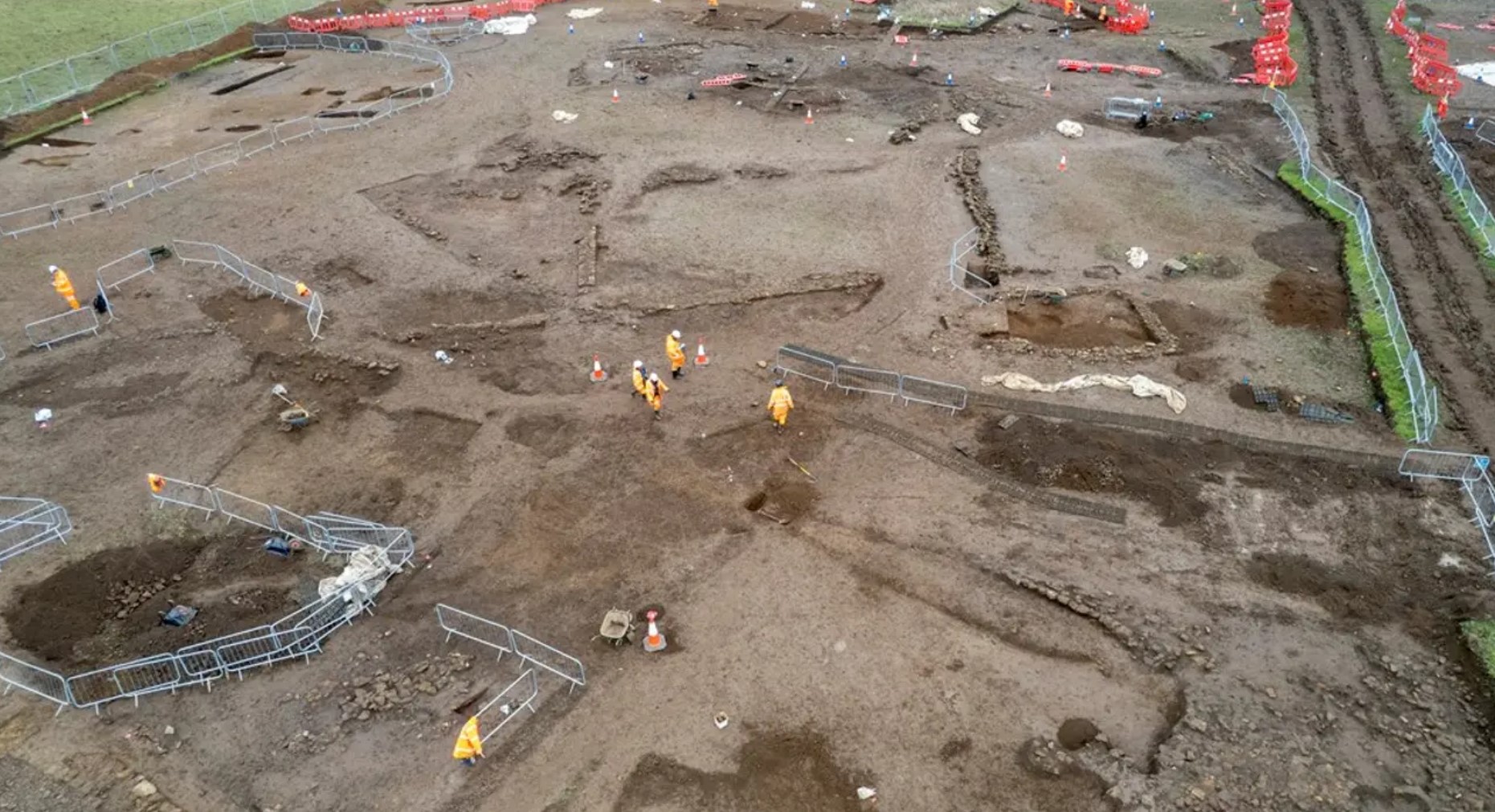What a great few weeks with lots going on, and the continuation of the Great British Dig and Digging for Britain
So here is the eclectic and diverse news roundup for the week ending 16/01/2022
Lots going on as ever – click the links to read the full story. and if you know of a story… let me know! info@bajr.org
WHY ARE OBJECTS “REDISCOVERED” IN MUSEUM STORES?
DigIt examines the question:
How do museums lose track of objects? Why do they go missing in the first place? How are they found again?
These questions might have resurfaced thanks to recent news stories about rediscovered and missing objects from museum collections such as the ancient Roman burial urn at National Museums Scotland, the rare Neolithic figurine at Stromness Museum and the wooden artefact from the Great Pyramid at the University of Aberdeen Museums and Special Collections.
To answer these questions, first we need to look at museum stores in more detail.
FIND OUT HERE :: Lost and found: Why are objects “rediscovered” in museum collections stores? – Dig It! (digitscotland.com)
Changes to the personal protective equipment (PPE) at work regulations
More serious story that looks at changes, that may not effect many, but enough that you should consider the consequences and requirements, whether you are an employer or a casual staff archaeologist.
The story was highlighted by the Federation of Archaeological Managers and Employers Ltd
the personal protective equipment (PPE) at work regulations will be changing from 6 April 2022. The change is that employers will now be required to provide PPE for ‘limb workers’.
‘If a risk assessment indicates that a limb (b) worker requires PPE to carry out their work activities, the employer must carry out a PPE suitability assessment and provide the PPE free of charge as they do for employees.’
Changes to the personal protective equipment (PPE) at work regulations (famearchaeology.co.uk)
15 Roman farms, 3 Saxon settlements, and a Woolly Mammoth – archaeological excavations on the A14
many of you will have been involved in this.
From 2016 to 2018 archaeologists excavated over 350 hectares as part of the A14 Cambridge to Huntingdon improvement scheme – one of the largest archaeological projects ever undertaken in the UK. But the story doesn’t end there… The #MOLAHeadland team have been busy analysing 1000s of artefacts recovered from the dig. Often using ground-breaking techniques, this work is providing a window into the past in breath-taking detail.
Follow the latest updates and discoveries HERE
A14 Cambridge to Huntingdon improvement scheme – MOLA Headland Infrastructure
Reflecting on Clitterhouse Playing Fields – stories past and present
Fabulous blog post interviewing MOLA archaeologist Francesca Bologna about what its like to work on evaluations in North London
Sometimes it’s the excavations that take place at the heart of a local community that can have the most impact.
Read the full story here:
Reflecting on Clitterhouse Playing Fields – stories past and present | MOLA
St Mary’s Lighthouse, Whitley Bay
Northern Archaeological Associates were commissioned by North Tyneside Council to excavate a series of trial trenches to inform a proposed planning application for a small development at the site to improve visitor facilities and access to the Grade II listed 19th century lighthouse and its associated buildings.
The site possibly represents one of the more unusual locations for an archaeological dig, with resident seals and sea birds as well as tidal working hours – time and tide wait for no man, or archaeologist!
Read More here: St Mary’s Lighthouse | Northern Archaeological Associates – NAA Heritage
Mapping the Maps: Deep Mapping of Historical Cartography and Documentary Sources in NE Wales
Jon presented on the innovative approaches to mapping and exploring heritage using the unique collection of sources at the Royal Commission. Using GIS, they have created a digital interface composed of layers of old maps, which can then be used to understand not only how the land has changed over time, but how the land was perceived and mapped in the first place.
PAS record millionth find
The national register to record discoveries of ‘buried treasure’ has reached one million finds – with the millionth being recorded at North Lincolnshire Museum. The Portable Antiquities Scheme records archaeological finds often discovered by metal detectorists.
Run by The British Museum and local partners, the scheme has announced its millionth find – a copper-alloy medieval harness pendant found at Binbook near Market Rasen. It was recorded by the Northern Lincolnshire Finds Liaison Officer based at North Lincolnshire Museum.
Rare Roman wooden figure uncovered by HS2 archaeologists in Buckinghamshire
An early Roman rare wooden carved figure has been discovered during work on the HS2 project. In July 2021, archaeologists from Infra Archaeology, working for HS2’s contractor Fusion JV, removed the well-preserved figure from a water-logged Roman ditch in a field in Twyford, Buckinghamshire.
As they were investigating at Three Bridge Mill, the team came across what they initially thought was a degraded piece of wood. As they continued to excavate it a humanlike, or anthropomorphic, figure was revealed. The figure, cut from a single piece of wood, stands at 67cm tall and is 18cm wide.
Neolithic site changes understanding of cattle herding
An archaeological site in Dublin with an unusually large collection of cattle remains could potentially change the understanding of beef and cattle herding in Middle Neolithic Ireland and Europe.
Data collected from the N2 Kilshane excavation in north county Dublin near Finglas by researchers from the UCD School of Archaeology and Queen’s University Belfast suggests that the multipurpose use of cattle for milk, meat and as draft animals was far more complex in later 4th millennium BC Atlantic Europe than previously thought.
Gender Identity in the Archaeological Record
Graves dating back thousands of years are giving up their secrets, as new ways to pin down the sex of old bones are overturning long-held, biased beliefs about gender and love.
At the same time, although scientific methods can take away some of the guesswork, “there’s just some stuff we’re not going to know about the past”, Geller says. Who loved whom is one of those things, as is people’s sense of identity. Archaeologists can only try, as best they can, to reconstruct the lives of past people based on the available data. Gardeła says it is a matter of respect for the people of the past. “Every grave tells a different story,” he says, “because they were all real humans. They had their own unique lives.”
Archaeology’s sexual revolution | Archaeology | The Guardian
Is archaeology being used to make HS2 look good?
As a rare Roman settlement is discovered along the HS2 route in Northamptonshire, Rory Sullivan investigates the relationship between the controversial train line and the archaeology industry
Is archaeology being used to make HS2 look good? | The Independent
( Registering is free )

